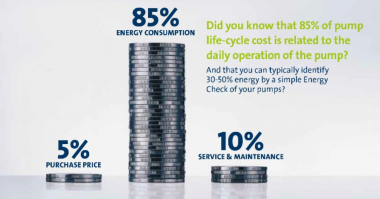Author: Cam Mackey
To achieve profitability targets over the next 12 months, nearly 80% of industrial manufacturing CEOs plan to focus on organic growth rather than cost reductions or M&A. While marketing isn’t entirely responsible for delivering organic growth, it plays a critical role in key growth enablers like innovation, pricing, and customer experience. Given the focus on driving profitability by creating value rather than simply taking out cost, it should be marketing’s time to shine. However, while the expectations placed on the function are high, there’s a fundamental problem. Many CEOs don’t trust the work done by marketing (as many as 80%, according to one study). They say that CMOs are too disconnected from financial reality, and not focused enough on ROI.
CMOs are getting the message: according to a MAPI study, three-quarters of marketers feel the pressure to become more data-driven, even if only a quarter have enough data to assess marketing ROI. So how can marketers move the dial to become more data-driven, in order both to build trust with the C-suite, but also to effectively drive organic growth? It requires investments in technology, processes, and talent, and digital marketing is an ideal testing ground.
On the technology and process sides, industrials have underinvested for years. According to a 2015 study with MAPI and BusinessOnline, three-quarters of marketers say that the reason they can’t measure ROI is that they don’t have the right systems and technologies in place, whether it be CRM, marketing automation, or other tools. Not surprisingly, companies are spending an enormous amount of money to enable greater speed and data visibility with technology that can optimize customer interactions. Shockingly, Gartner has predicted that marketing leads will spend more on IT this year than CIOs. To help our members understand what this means for them, MAPI will release the results of a study early next year looking at how manufacturers are leveraging their CRM investments to drive growth.
There are many sources of information on manufacturing’s skills gap, where companies struggle to fill positions with qualified workers. But we hear far less about the marketing skills gap. As the function’s mandate has shifted from “spray and pray” to hyper-personalization, companies are struggling to attract and retain the right types of talent to enable that transformation. In a recent MAPI meeting, 79% of CMOs said they don’t have the right marketing talent in place to meet growth goals.i According to a 2016 CMO Survey, the three most important skills for marketers to have today are data analytics/insights, strategic thinking, and digital marketing. Unfortunately, these are also the three skills that are proving most difficult to find. The industry doesn’t operate in a vacuum; manufacturers are competing against start-ups, universities, and tech firms for data analytics talent, for example. Unless manufacturers either develop or attract talent in these areas, they’ll continue to be forced to outsource these key competencies, or worse, sit on the sidelines of marketing’s digital transformation.
What does this have to do with digital marketing? Nearly three-quarters of CMOs agree that digital marketing is critical to driving organic growth.ii We’d propose that digital is the perfect channel for manufacturers to deliver on the organic growth mandate. An effective digital strategy lives or dies on its efficiency, transparency, and personalization, not to mention its business results. Because digital is such a metric-rich channel, it allows CMOs to build credibility with the C-suite, and to make the business case that data-driven marketing is the future, and that future is now.





Comments